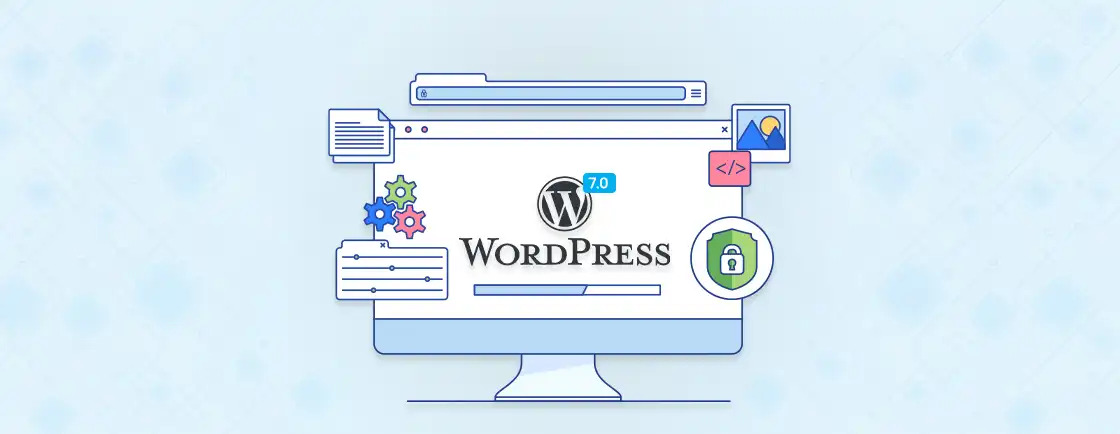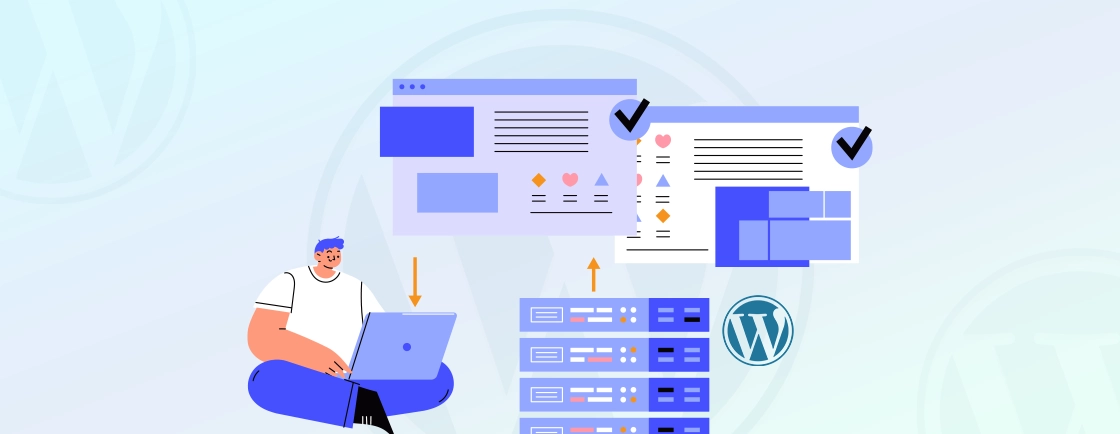Table of Contents
Building a WordPress website can be excellent for establishing a strong online presence. But can the process be made more efficient with a Linux OS like Ubuntu?
Experts often consider WordPress as the best CMS for creating websites. And paired with Ubuntu, its pros can be accentuated. The compatibility between WordPress and Ubuntu ensures smooth performance and efficient use of resources. Plus, Ubuntu’s stability, security features, and vast open-source community make it one of the best OS for web developers.
What is Ubuntu?
Ubuntu is a free and open-source operating system based on Linux. Ubuntu is designed to be user-friendly, making it one of the most popular choices for developers seeking a stable and secure operating system. It is developed and maintained by Canonical.
Here are some key features and aspects of Ubuntu:
- Free and Open-Source: Ubuntu is completely free to use and modify. This makes it a budget-friendly option for individuals and businesses alike.
- User-Friendly: Ubuntu offers a user-friendly interface that’s familiar to Windows or macOS users. It comes pre-loaded with essential applications for web browsing, email, and productivity tasks.
- Secure: Built on the strong foundation of Linux, Ubuntu is known for its robust security features. It includes a built-in firewall and regular updates to address vulnerabilities.
- Hardware Compatibility: Ubuntu generally has good compatibility with a wide range of hardware components. Plus, hardware components have open-source drivers readily available for Ubuntu, ensuring compatibility.
- Software Repositories: Ubuntu uses software repositories, which are essentially online stores for applications. This vast repository allows you to easily find and install a wide variety of free and open-source software.
- Customizable: One of the strengths of open-source software is customization. Ubuntu allows you to personalize your desktop environment and install the specific software you need.
- Multiple Editions: Beyond the standard desktop version, Ubuntu offers various flavors like Kubuntu and Ubuntu Studio. There are also server editions for web hosting and cloud deployments.
By combining these features, Ubuntu offers a powerful, user-friendly, and secure operating system that caters to a wide range of users. But now, let’s see why developers use WordPress on Ubuntu.
Why Use WordPress on Ubuntu?
Using WordPress on Ubuntu offers several compelling advantages, making it a popular choice for developers and beginners. Here are some key reasons why you might choose to use WordPress on Ubuntu:
- Self-reliance: By setting up WordPress on Ubuntu, you gain full control over your WordPress development environment. This allows for more customization and optimization than using a shared hosting platform.
- Custom server configuration: Ubuntu offers a high degree of control over the server configuration. So, you can tailor settings to optimize performance and security for your specific WordPress website.
- Free and Open-Source: Both Ubuntu and WordPress are free and open-source software. This eliminates licensing costs associated with website-building tools or pre-configured hosting environments.
- Scalability: As your website grows, you can easily scale the Ubuntu server’s resources (CPU, RAM) to accommodate increased traffic. This flexibility can be more cost-effective than pre-defined hosting plans offered by some providers.
- Regular Updates: Ubuntu and WordPress both prioritize regular security updates, ensuring your site remains protected from vulnerabilities. It provides more control over the update process within your server.
- Vast Plugin and Theme Ecosystem: WordPress offers thousands of free and paid plugins and themes. You can tailor the functionality and design of your website to your exact needs. That means you can exceed the limitations of pre-built website templates.
By using WordPress on Ubuntu and choosing to hire WordPress developers, you can fully leverage the strengths of both platforms. This collaboration ensures a powerful, secure, and flexible web solution tailored to your business needs.
How to Install WordPress on Ubuntu?
Installing WordPress on Ubuntu involves several steps, including setting up a LAMP stack (Linux, Apache, MySQL, PHP). Plus, configuring the necessary components and downloading and installing WordPress. Here is a step-by-step guide:
Prerequisites
- Basic understanding of Ubuntu: This guide assumes you’re comfortable using the Ubuntu terminal and running commands.
- Access to an Ubuntu server: You’ll need an Ubuntu server where you can install the software.
Step 1: Install Dependencies (LAMP Stack)
Before we begin, ensure you have a running Ubuntu system with administrative privileges and terminal access.
- Update package lists: This ensures you have the latest information about available software packages.
sudo apt update
- Install Apache, MySQL, and PHP: These are the core components needed to run WordPress: Apache, MySQL, and PHP. Additionally, we’ll install some required PHP for WordPress functionality.
sudo apt install apache2 mysql-server php php-bcmath php-curl php-imagick php-intl php-json php-mbstring php-mysql php-xml php-zip
- Secure MySQL: It is crucial to protect your database. Run the script and follow the prompts to set a strong root password for MySQL.
mysql_secure_installation
With this, we have all the dependencies to run the Ubuntu system.
Step 2: Install WordPress
Now that we have the LAMP stack up and running, let’s install the WordPress application.
- Download the latest version: Download the latest WordPress version from the official WordPress website.
- Extract the downloaded file: This unpacks the downloaded compressed archive into a folder.
tar -xvf wordpress.tar.gz
- Move to document root: This places the WordPress files in the directory where Apache looks for website content. To move it to the root document, use:
sudo mv wordpress /var/www/html
After performing the above step, you will have WordPress installed on your system.
Step 3: Configure Apache for WordPress
Here, we configure Apache for WordPress. You can do it as follows:
- Create virtual host configuration: A virtual host configuration lets Apache handle requests for your WordPress website. Create a new file using:
sudo nano /etc/apache2/sites-available/wordpress.conf
- Edit virtual host configuration: Paste the following configuration into the file, replacing your_domain_or_ip with your domain name or server’s IP address:
<VirtualHost *:80>
ServerAdmin your_email@example.com
DocumentRoot /var/www/html/wordpress
<Directory /var/www/html/wordpress>
Options Indexes FollowSymLinks
AllowOverride All
Require all granted
</Directory>
ErrorLog ${APACHE_LOG_DIR}/error.log
CustomLog ${APACHE_LOG_DIR}/custom.log combined
</VirtualHost>
- Enable virtual host configuration: To enable the virtual host, use:
sudo a2ensite wordpress.conf
- Restart Apache: For restarting the Apache server, you can use the following:
sudo systemctl restart apache2
Now, we have created a virtual host and have Apache configured on our WordPress.
Apache configurations extend beyond virtual hosts. The WordPress .htaccess file provides directory-level controls for permalinks, redirects, and access restrictions.
Step 4: Configure Database
Security is paramount. Before creating the database for WordPress, take a moment to secure your MySQL installation.
- Secure MySQL: Run the below command and set a strong root password for your MySQL database. This protects your database from unauthorized access.
sudo mysql_secure_installation
- Log in to MySQL: Use the command below to log in to MySQL as the root user. Enter your MySQL root password when prompted.
sudo mysql -u root -p
- Create a database: Create a database specifically for WordPress using the CREATE DATABASE wordpress command. Then, create a user for WordPress to access the database and grant it the necessary permissions. You can achieve this with commands like:
CREATE USER wordpressuser@localhost IDENTIFIED BY 'your_strong_password';
GRANT ALL PRIVILEGES ON wordpress.* TO wordpressuser@localhost;
FLUSH PRIVILEGES;
To ensure security, set a strong password and only then create a database to protect the site from attacks and threats.
Step 5: Configure WordPress
After the database configuration, the final configuration is WordPress. You can do it as follows:
- Access the WordPress installer: Open your web browser and visit http://your_domain_or_ip/wp-admin/install.php (replace with your domain or IP).
- Complete the installation process: Follow the on-screen instructions to provide your site title, username, password, and other settings for your WordPress website.

We’ve completed the WordPress installation process, defining essential settings for your website.
After the LAMP stack configuration, the WordPress installation creates wp-config.php. The wp-config.php in WordPress helps optimize database connections and security settings.
Step 6: Testing WordPress Installation
While not strictly necessary, it’s a good practice to perform some basic tests to ensure everything is working as expected.
- Log in to the WordPress admin panel: After installation, visit http://your_domain_or_ip/wp-login.php and log in using the credentials you created during installation.

- Explore the WordPress admin panel: Navigate through the admin panel to ensure basic functionalities like creating posts, pages, and managing settings work correctly.
By doing so, you can explore the WordPress admin panel and perform some basic tests to confirm that content creation functionalities are operational.
Now, you can start creating content and installing themes and plugins to customize your website. By following these steps and testing your site, you’ll have a secure and functional WordPress installation on your Ubuntu server. But if you need more customization to build an exceptional site, seek help from a WordPress development company.
Conclusion
Ubuntu can be an excellent OS for creating WordPress websites. It offers advantages like greater control and customization, cost-effectiveness (with open-source software), security and stability, flexibility, etc.
Installing WordPress on Ubuntu involves setting up the LAMP stack, creating a database, downloading and configuring WordPress, and configuring Apache.
FAQs About Installing WordPress on Ubuntu
Can I install WordPress on any version of Ubuntu?
Yes, you can install WordPress on any version of Ubuntu. However, it is recommended to use the latest Long-Term Support (LTS) version for optimal performance and long-term support.
What are the minimum requirements for installing WordPress on Ubuntu?
To install WordPress on Ubuntu, you will need a web server such as Apache or Nginx, a database management system like MySQL, and PHP. The minimum recommended versions are Apache 2.4 or Nginx 1.14, MySQL 5.6 or MariaDB 10.1, and PHP 7.2 or higher.
Can I use a one-click installer to install WordPress on Ubuntu?
Yes, there are various one-click installers available that can help you install WordPress on Ubuntu. These installers will handle the installation of all the necessary components and can save you time and effort.
Create with WordPress CMS
Build flexible and scalable websites using WordPress's powerful content management system.





